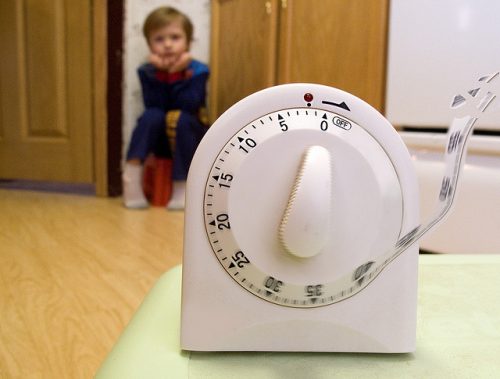Below are some of the best positive parenting guidelines from a counselor and a trained professional gathered about taking care of your family. Positive parenting focuses on teaching children what type of behavior is acceptable.
Don’t Be Too Loving
Experts agree that in parenthood, folks should not show too much love for their children. Instead, when it comes to ‘spoiling’ young kids with too much love, this actually refers to the outcomes of giving your child too many things to substitute for love, be they reduced expectations or material things.

It Matters What You Do
The way you react and deal with your child’s behavior truly gives you the benefit you need. Your child is looking at you! This is one of the parenting tips that encourage folks not to respond spontaneously but with a voluntary sense of what they want to achieve with a given reaction or mediation. Make sure to teach them the right thing to do and reward them accordingly.
Be Present Physically In His Life
The first step of the treatment is your presence. It entails being present for your relationship emotionally and mentally. Effective tips in good childrearing skills state that folks adopting this concept are often struggling and changing their plans and priorities in their lives, and they sacrifice their own desire for their child’s development. It doesn’t necessarily mean that you have to do your child’s tasks, like school homework. Taking steps implies that a single parent or too many parents who have not gone inside the gym to be there for their child’s games are not taking heed of this tip and are most likely not helping their child develop well.
Determine And Set Your Rules
This is one of the most beneficial parenting tips for good childrearing skills.
Self-reliance occurs gradually through appropriate outside discipline from early years, as kids develop independence to learn to handle themselves based on how their parents treated them when they were younger. Let your child know what the consequences will be if they break the rules. Counselors tell many adults and their spouses that they must continually be capable of watching out and answering these important questions:
“Where is my child?
“What is my child doing now?”
“Who is my child?”

Own parents who raise kids with no restrictions or limitations or avoid harsh discipline during child development will have a tough time disciplining themselves in the long run. Remember, folks, that this is not an alibi for you to micro-manage, as this may accomplish the opposite result. Put yourself in their shoes and the rest will follow.
Cultivate Your Child’s Individuality
Helping your toddler or kid learn rules vary with a positive attitude, self-esteem, emotions, and healthy relationships. The restrictions set by mom and dad when their child will enable the child to identify and establish internal boundaries (self-control) and avoid inappropriate behavior. When you allow individuality and only expect realistic results, children get a sense of direction and are unable to commit huge mistakes in the future. If you often feel let down by your child’s behavior, perhaps you have unrealistic expectations. Autonomous, positive living needs both to protect the child and your well-being.
You can try setting responsibilities and limits, assuming that the motivation for individuality is disobedience or rebellion. Just don’t ignore their needs or pressure them in an instant. Focus on the areas that need the most attention rather than trying to address everything all at once. You can offer professional advice in recognizing that it is natural to wish to be in control instead of being controlled by parents.
Loving your child can be as simple as giving them hugs, spending quality time with them, having family meals together in the house, and listening to your child’s problems seriously. Seize every available moment to make a connection and you’ll see all the difference.
Clearly Explain Your Decisions And Rules
Good parents set rules and effective discipline for their children to meet. Still, these techniques are not probably obvious as child grows – perhaps even to their teens – because of their lesser experiences in life and varying priorities. A great parent is inclined to explain to their children and under-explain to the teenagers overly, but it is still important to spend time to give your child positive attention on this matter. When a child has a strong sense of what his folks want something accomplished, he is most likely to show good behavior.
Practice Consistency
When the rules established differ from day to day (or case to case), children’s misconducts are the adult’s responsibility, not the children’s. Consistency is the most crucial disciplinary instrument, appropriately polished by well-defined identification of the folks’ non-negotiable rules. The more the parents’ influence is grounded on the child’s life on wisdom and not power (even if with their issue with divorce), the lesser it’ll give your child a reason to challenge it. You don’t need to have all the answers to be a good parent. Just listening to them talk. Being inconsistent confuses the children.
Avoid Tough And Insensitive Discipline
Parents implore several types of extreme discipline services to show “good example”, but the most unpleasant is that of the physical mistreatment process. Children who are scolded, slapped, or hit, are more disposed to fighting with other children. They have a higher likelihood of being school bullies and will probably use hostility to solve disputes with others. A good parent must not hit their children. Hitting causes the risk of violence, the use of drugs, and unhandled finances, and this leads to behavior problems and tarnishes their own well-being and good relationship with others. They might end up abusing alcohol in their adulthood and use the habit as an excuse. Kids learn from you, being abusive or hitting just teaches them to handle conflict with aggression and meanness. Choose your words carefully and be compassionate. Timeouts are a more effective punishment.

Treat Them With Respect
If you want to be respected by your children, you should do a nice job of respecting them. Your tone of voice, your body language, and your every expression are absorbed by your kids and are making a difference. Children must be given the same respect as anyone, which includes folks, families, and friends. A parent must be a good role model and should talk politely, treat them kindly, and pay attention when their child talks to them. Folks must strive to help their child during childhood whenever that is possible. They will treat other people the way their parents teach them, and their family life is their childhood foundation for their life skills and ability as well. Raise grateful kids, and show your child how to become a responsible citizen.
Note that if you still deal with behavioral issues, you might find it helpful to read up on the matter or to talk to other parents or child development specialists.
FAQ
What are the 5 positive parenting suggestions?
What are the 4 types of childrearing styles?
What are the 5 traits of a healthy family?
What are some parenting weaknesses?
What is negative parenthood?
What should you not do while parenting?
What is the hardest parenting age?
What makes a good parent?
What makes a positive parent?
What’s the best parenting style?
Do and don’ts of parenting?
How do I know if I am a good parent?
How do you raise a confident child?
How do I start gentle parenting?
What is the most harmful parenting style?
